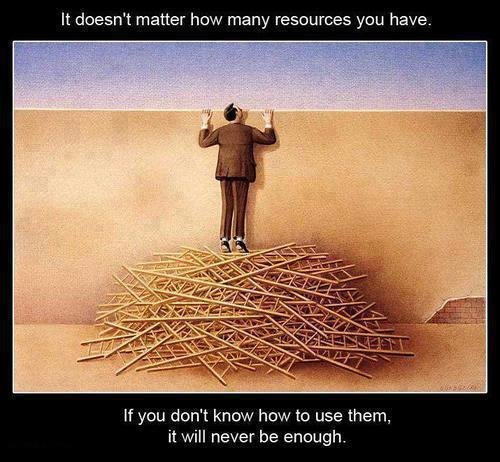Here are the basics of money management that you need to learn and apply consistently before you move into more sophisticated territory.
Set clear, specific goals.
Will you attempt to do something if you don’t know what it is? I guess not. Define first what it is you are trying to achieve before you act. Clear and specific goals will give you focus and direction, and it increases your chances of success. (Investing just for the sake of investing is not really a smart goal. It’s not even a goal.) Listing your goals and prioritizing them will also help you decide the most appropriate actions to take. For example, if your top goal is to reduce debt by 50% in one year then your focus will probably be on how to reduce expenses and divert savings to pay-off debt instead of investing the money.
Assess your financial condition.
Take stock of what you own and what you owe. This will allow you to see any weaknesses in your finances like if you are deep in debt or face possible liquidity problems because most of your assets are in properties. It can also guide you to make the right investment decisions. If you see that you already have too much of the same type of investment, you might want to put some of your funds in other investments so you are diversified.
Create a realistic budget and spend wisely.
What good will advance investment knowledge do you if you don’t have any money to invest? Creating a realistic budget or spending plan can help you manage your expenses and allow you to maximize savings. You also need to learn how to spend wisely so your budget will work and whatever investment profits you gain will not go to waste. Planning to celebrate lavishly tonight after your stocks have gone up for 20 straight days? Poof! There goes your profit!
Reduce debt to manageable levels.
Most of your excess money should be used to pay off debt rather than investing it. (But you have to maintain an adequate amount of emergency fund.) You will be losing money if you prioritize investing over settling your debt obligations. Interest rates on loans and other debts are generally higher than potential investment earnings and profits gained will not be enough to cover interest payments. You will also suffer a double whammy if your investments lose value.
Create a safety net for financial emergencies.
Make sure you have an adequate safety net to cushion the impact of financial emergencies before you start investing. This financial safety net will include an ample amount of emergency fund, substantial life and health insurance coverage.
Live healthy and safely.
Do not sacrifice your health in the pursuit of more money. As the Filipino saying goes, “aanhin ang yaman kung maraming karamdaman?” You will not be able to enjoy it. Any savings and investments you have could be gone in a flash if you go down with a critical illness or suffer serious injuries from an accident. Follow a healthy lifestyle. Eat properly, exercise, quit smoking, drink moderately rather than desperately, and don’t do drugs. Avoid or limit activities with higher risk of injuries or death like extreme sports and singing “My Way” in a videoke bar.
Do not plunge into advanced and more complex areas of personal finance until you have done and mastered these basic money management tasks and strategies. You can never go wrong with the basics.

Credits to: maginvestkapinoy.com



















